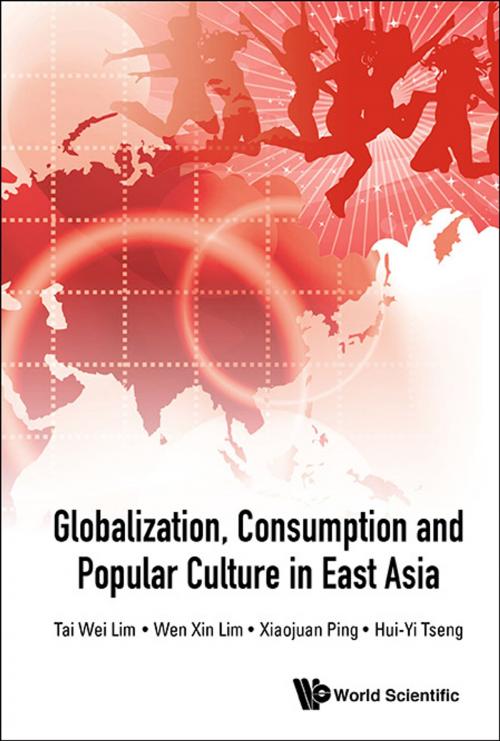Globalization, Consumption and Popular Culture in East Asia
Nonfiction, Social & Cultural Studies, Political Science, Government, Public Policy, Social Science, Cultural Studies, Popular Culture| Author: | Tai Wei Lim, Wen Xin Lim, Xiaojuan Ping;Hui-Yi Tseng | ISBN: | 9789814678216 |
| Publisher: | World Scientific Publishing Company | Publication: | September 2, 2016 |
| Imprint: | WSPC | Language: | English |
| Author: | Tai Wei Lim, Wen Xin Lim, Xiaojuan Ping;Hui-Yi Tseng |
| ISBN: | 9789814678216 |
| Publisher: | World Scientific Publishing Company |
| Publication: | September 2, 2016 |
| Imprint: | WSPC |
| Language: | English |
This book aims to provide comprehensive empirical and theoretical studies of expanding fandom communities in East Asia through the commodification of Japanese, Korean and Chinese popular cultures in the digital era. Using a multidisciplinary approach including political economy, East Asian studies, political science, international relations concepts and history, this book focuses on a few research objectives. In terms of methodology, it is an area studies approach based on interpretative work, observation studies, policy and textual analysis. First, it aims to examine the closely intertwined relationship between the three major stakeholders in the iron triangle of production companies, consumers and states (i.e., role of government in policy promotion). Second, it studies the interpenetration, adaptation, innovation and hybridization of exogenous Western culture with traditional popular cultures in (North) East Asia. Third, it studies the influence of popular cultures and how cultural products resonate with a regional audience through collective consumption, contents reflective of normative values, the emotive and cognitive appeal of familiar images and social learning as well as peer effect found in fan communities. It then examines how consumption contributes to soft cultural influence and how governments leverage on its comparative advantages and cultural assets for commercial success and in the process augment national (cultural) influence. These questions will be discussed and analyzed and contextualized through the case studies of J-pop (Japanese popular culture), K-pop (Korean popular culture or Hallyu) and Chinese popular culture (including Mando-pop and Taiwanese popular culture).
This book aims to provide comprehensive empirical and theoretical studies of expanding fandom communities in East Asia through the commodification of Japanese, Korean and Chinese popular cultures in the digital era. Using a multidisciplinary approach including political economy, East Asian studies, political science, international relations concepts and history, this book focuses on a few research objectives. In terms of methodology, it is an area studies approach based on interpretative work, observation studies, policy and textual analysis. First, it aims to examine the closely intertwined relationship between the three major stakeholders in the iron triangle of production companies, consumers and states (i.e., role of government in policy promotion). Second, it studies the interpenetration, adaptation, innovation and hybridization of exogenous Western culture with traditional popular cultures in (North) East Asia. Third, it studies the influence of popular cultures and how cultural products resonate with a regional audience through collective consumption, contents reflective of normative values, the emotive and cognitive appeal of familiar images and social learning as well as peer effect found in fan communities. It then examines how consumption contributes to soft cultural influence and how governments leverage on its comparative advantages and cultural assets for commercial success and in the process augment national (cultural) influence. These questions will be discussed and analyzed and contextualized through the case studies of J-pop (Japanese popular culture), K-pop (Korean popular culture or Hallyu) and Chinese popular culture (including Mando-pop and Taiwanese popular culture).















